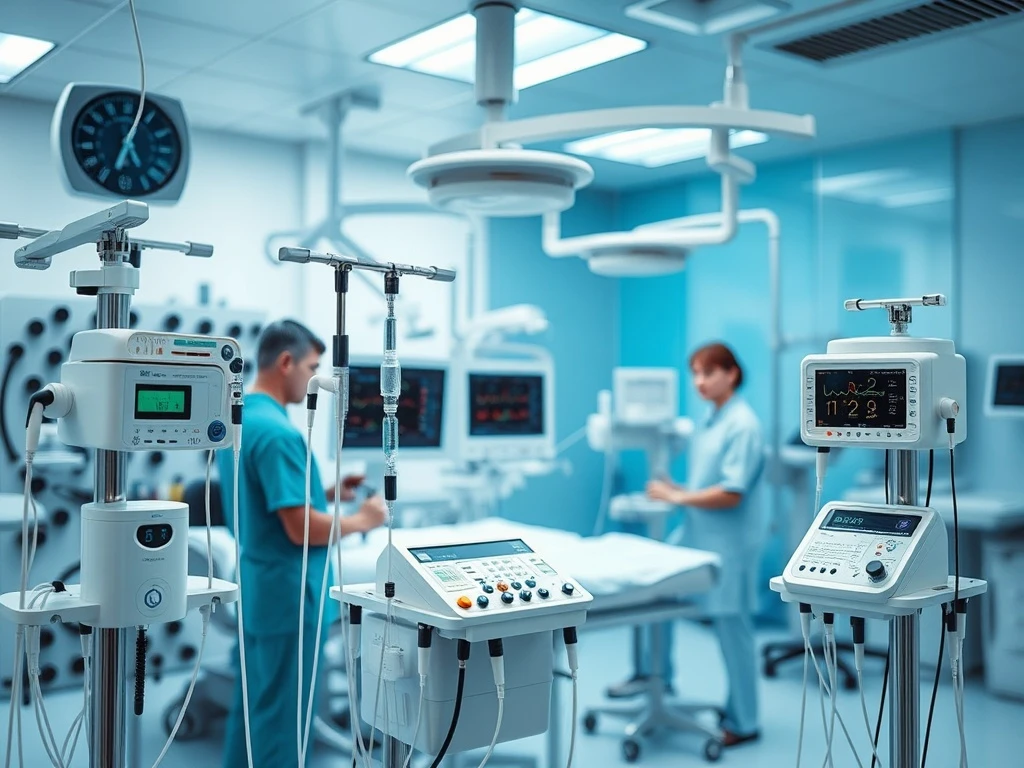Selecting the right medical device pumps represents one of the most crucial decisions in healthcare technology development. These precision instruments directly impact patient outcomes, treatment efficacy, and overall care quality. Medical professionals and device manufacturers must carefully evaluate multiple factors to ensure optimal performance and safety.
Accuracy and Precision in Medical Device Pumps
Precise flow control forms the foundation of effective medical treatment. Even minor deviations in medication delivery can significantly impact patient health. Modern medical device pumps incorporate advanced technology to maintain consistent performance. Furthermore, smart pump systems automatically adjust infusion rates based on real-time monitoring.
Safety Features for Medical Device Pumps
Patient safety remains paramount when selecting medical device pumps. Advanced safety systems include multiple protective mechanisms. Pressure sensors detect potential blockages or leaks immediately. Air-in-line alarms prevent dangerous bubbles from entering intravenous lines. Free-flow protection mechanisms avoid accidental medication overdoses.
Application-Specific Medical Device Pumps
Different medical applications require specialized pump designs. Matching the pump type to the specific use case ensures reliable performance. Enteral feeding pumps must deliver nutrition with consistent accuracy. Ambulatory infusion pumps prioritize portability and battery life. Surgical applications demand high-volume blood movement capabilities.
Size and Portability Considerations
Physical dimensions significantly impact pump usability in various care settings. Compact medical device pumps improve patient comfort and mobility. Portable designs enable continuous treatment during daily activities. Hospital environments benefit from space-efficient pump configurations. Power options must align with intended usage patterns and locations.
Material Selection and Biocompatibility
Pump materials directly influence both safety and durability. Medical-grade components ensure compatibility with pharmaceutical products. Biocompatible materials prevent adverse reactions with medications or biological fluids. Durable construction withstands repeated sterilization processes. Material choices also affect maintenance requirements and service life.
Maintenance and Reliability Factors
Reliable medical device pumps reduce operational downtime and maintenance costs. Simple maintenance procedures support consistent performance. Easy-cleaning designs prevent cross-contamination between patients. Durable components withstand continuous clinical use. Manufacturers provide clear service guidelines and support options.
Digital Integration Capabilities
Modern medical device pumps increasingly incorporate digital connectivity features. Smart pumps integrate with electronic health record systems. Remote monitoring capabilities enhance clinical oversight. Data logging functions track treatment history and performance metrics. These digital features support improved patient care coordination.
Frequently Asked Questions
What are the most critical safety features in medical device pumps?
Pressure monitoring, air detection, and free-flow prevention represent essential safety features. These systems work together to prevent medication errors and ensure patient safety during infusion therapies.
How do smart pumps differ from traditional infusion devices?
Smart pumps incorporate drug libraries, dose error reduction systems, and connectivity features. They provide additional safety layers through automated checks and electronic documentation capabilities.
What factors determine pump selection for home healthcare?
Portability, battery life, ease of use, and reliability are primary considerations. Home-use pumps must operate safely without constant clinical supervision while maintaining treatment accuracy.
How often should medical device pumps undergo maintenance?
Maintenance frequency depends on usage intensity and manufacturer recommendations. Most pumps require regular calibration checks and preventive maintenance every 6-12 months.
What materials ensure pump biocompatibility?
Medical-grade plastics, stainless steel, and specialized elastomers provide biocompatibility. These materials prevent interactions with medications and maintain fluid integrity during delivery.
Can medical device pumps integrate with hospital information systems?
Modern pumps often feature connectivity options for integration with EHR systems. This enables automated documentation and remote monitoring of infusion therapy parameters.








